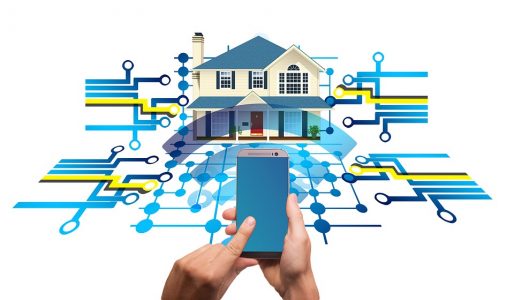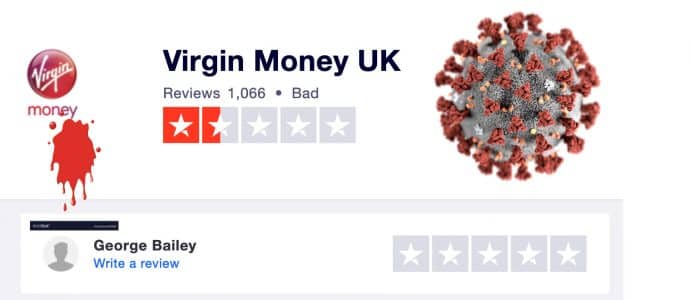Are Smart Homes the Next Step of the Technology Revolution? - Dispatch Weekly
July 31, 2018 - Reading time: 6 minutes

With the digital revolution affecting every aspect of society, it’s been inspiring to see the positive influence it’s had on various parts of our lives. However, it’s our houses that are now being re-designed and transformed by technology.
Houses are being crammed with technology in every possible place you could imagine; the kitchen, lounge, bedroom and even the bathroom! However, this so-called ‘Smart Home Revolution’ is currently at the start of its journey, and is only really available to the wealthiest if you’re after the real deal.
An extreme example of a Smart Home would be Bill Gates’ Xanadu 2.0. His house has an estimated worth of $123 million and took a total of 7 years to build. This house is the peak of the Smart Home industry, and with some of the features it has included it’s easy to see why.
When guests enter the Washington tech complex, they are given a pin which ‘interacts with a high-tech sensor system’ that allows guests to enter in their preferred lighting and temperature settings. As they move round the house these settings follow them.

With 24 bathrooms, 6 kitchens, a home theatre, a 200-guest reception hall and a 23-car garage – the Xanadu 2.0 house sounds more like a holiday resort than a family home. And with a 20-feet ceiling trampoline room, it’s not exactly your everyday bog-standard house.
However, despite the neat attributes of the Xanadu 2.0, all Smart Homes have 1 attribute in common, and its interaction. Smart Homes function around and react to human interaction, such as the lights switching on when somebody enters or turning the thermostat up via a smartphone. But it’s actually ‘smartphone integration’ that is making Smart Home features more affordable than before.
The introduction of ‘Amazon Dash buttons’ was simple yet brilliant. Amazon realised that there were everyday items that consumers purchase regularly but have to go through the whole ordering process every time. However, once you’ve connected the dash button with your Amazon account all you need to do is press the button to order the item. For example, dog food, dishwasher tablets, etc.
Amazon have also been competing against the Google Home device in the Artificial Intelligence (AI) department – turning ordinary homes into Smart Homes. With either the Amazon Echo or Google Home you can; set a timer for when you’re cooking or ask for a happy music playlist on a Friday after work – both AI’s just make life a bit easier.
 The internet of things (IoT)‘encompasses everything connected to the internet, it’s made up of devices from simple sensors to smartphones and wearables – connected together’. Therefore, when considering Smart Homes – the IoT is key. Every device in a Smart Home is connected on a network and will continuously interact with each other based on human action. For example, the garage door will open when a user goes close to it with their smartphone. In a Smart Home, every single device is connected – you can even control your whole heating system from your smartphone, and you won’t even need to be at home!
The internet of things (IoT)‘encompasses everything connected to the internet, it’s made up of devices from simple sensors to smartphones and wearables – connected together’. Therefore, when considering Smart Homes – the IoT is key. Every device in a Smart Home is connected on a network and will continuously interact with each other based on human action. For example, the garage door will open when a user goes close to it with their smartphone. In a Smart Home, every single device is connected – you can even control your whole heating system from your smartphone, and you won’t even need to be at home!
The IoT gives users a huge amount of possibilities in the way of what and what not to connect in their Smart Home. However, with the ongoing advancement of the IoT, ‘British homes are vulnerable to a staggering level of corporate surveillance through common internet enabled devices’ according to the Guardian.
With everything linked to the internet – the questioning surrounding security and privacy of data has never been so intense. With manufacturers collecting so much data from their consumers, it’s incredibly difficult to guarantee its security and therefore users with Smart Homes cannot be certain over who has access to their private data.
However, despite the rising number of questions around security – it’s important to note that Smart Homes are the next step in this tech infused world, and it’s actually making life better for all types of people and families. The IoT movement is so strong now that it won’t be long until virtually everything will be connected; whether it’s toasters or even cows. Everything will be connected and Smart Homes are just the beginning of this revolution.

DW Staff
David Lintott is the Editor-in-Chief, leading our team of talented freelance journalists. He specializes in covering culture, sport, and society. Originally from the decaying seaside town of Eastbourne, he attributes his insightful world-weariness to his roots in this unique setting.




